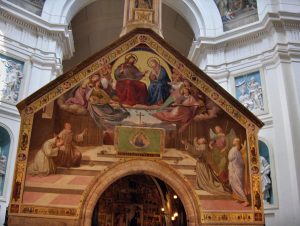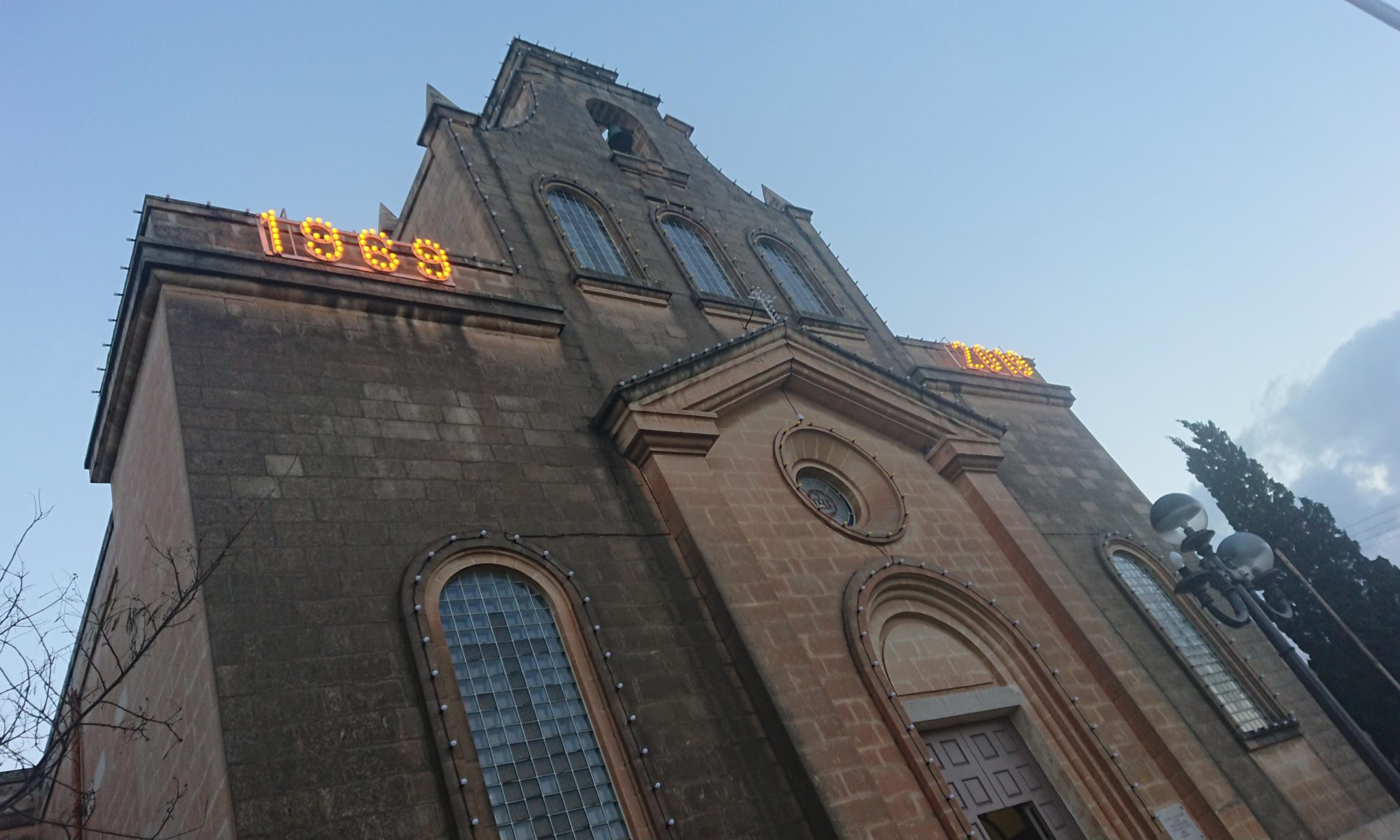The Porziuncola Indulgence could at first be gained only in the Porziuncola chapel between the afternoon of 1 August and sunset on 2 August. On 5 August 1480 (or 1481), Pope Sixtus IV extended it to all churches of the first and second orders of St. Francis for Franciscans. On 4 July 1622, this privilege was further extended by Gregory XV to all the faithful, who, after confession and the reception of Holy Communion, visited such churches on the appointed day. On 12 October 1622, Gregory XV granted the same privilege to all the churches of the Capuchins. Pope Urban VIII granted it for all churches of the regular Third Order on 13 January 1643, and Clement X for all churches of the Conventuals on 3 October 1670.
Later popes extended the privilege to all churches pertaining in any way to the Franciscan Order, even to churches in which the Third Order held its meetings (even parish churches, etc.), provided that there was no Franciscan church in the district, and that such a church was distant over an Italian mile (1000 paces). Some districts and countries have been granted special privileges.While the declarations of the Popes have rendered the Porziuncola Indulgence certain and indisputable from the juridico-canonistic standpoint, its historical authenticity (sc. origin from St. Francis) is still a subject of dispute. The controversy arises from the fact that none of the old legends of St. Francis mentions the Indulgence, and no contemporary document or mention of it has down to us. The oldest document dealing with the Indulgence is a notary’s deed of 31 October 1277, in which Blessed Benedict of Arezzo, whom St. Francis himself received into the order, testifies that he had been informed by Brother Masseo, a companion of St. Francis, of the granting of the Indulgence by Pope Honorius III at Perugia. Then follow other testimonies, for example, those of Jacob Cappoli concerning Brother Leo, of Oddo of Acquasparta, Peter Zalfani, Peter John Olivi (who wrote a scholastic tract in defence of this indulgence about 1279), John of Laverna, Ubertino da Casale, Francis of Fabriano, whose testimony goes back to the year 1268, and others.
The norms and grants of indulgences were completely reformed by Pope Paul VI after the Second Vatican Council in his Apostolic Constitution “Indulgentiarum Doctrina” (1967), and the Portiuncula Indulgence was again confirmed at that time.
According to the Enchiridion Indulgentiarum, the Catholic faithful may gain a plenary indulgence on 2 August (the Portiuncula) or on such other day as designated by the local ordinary for the advantage of the faithful, under the usual conditions (sacramental Confession, Holy Communion, and prayer for the intentions of the Supreme Pontiff), by devoutly visiting the parish church, and there reciting at least the Lord’s Prayer and the Creed. The Indulgence applies to the cathedral church of the diocese, and to the co-cathedral church (if there is one), even if they are not parochial, and also to quasi-parochial churches. To gain this, as any plenary indulgence, the faithful must be free from any attachment to sin, even venial sin. Where this entire detachment is wanting, the indulgence is partial.
Source: Wikipedia

